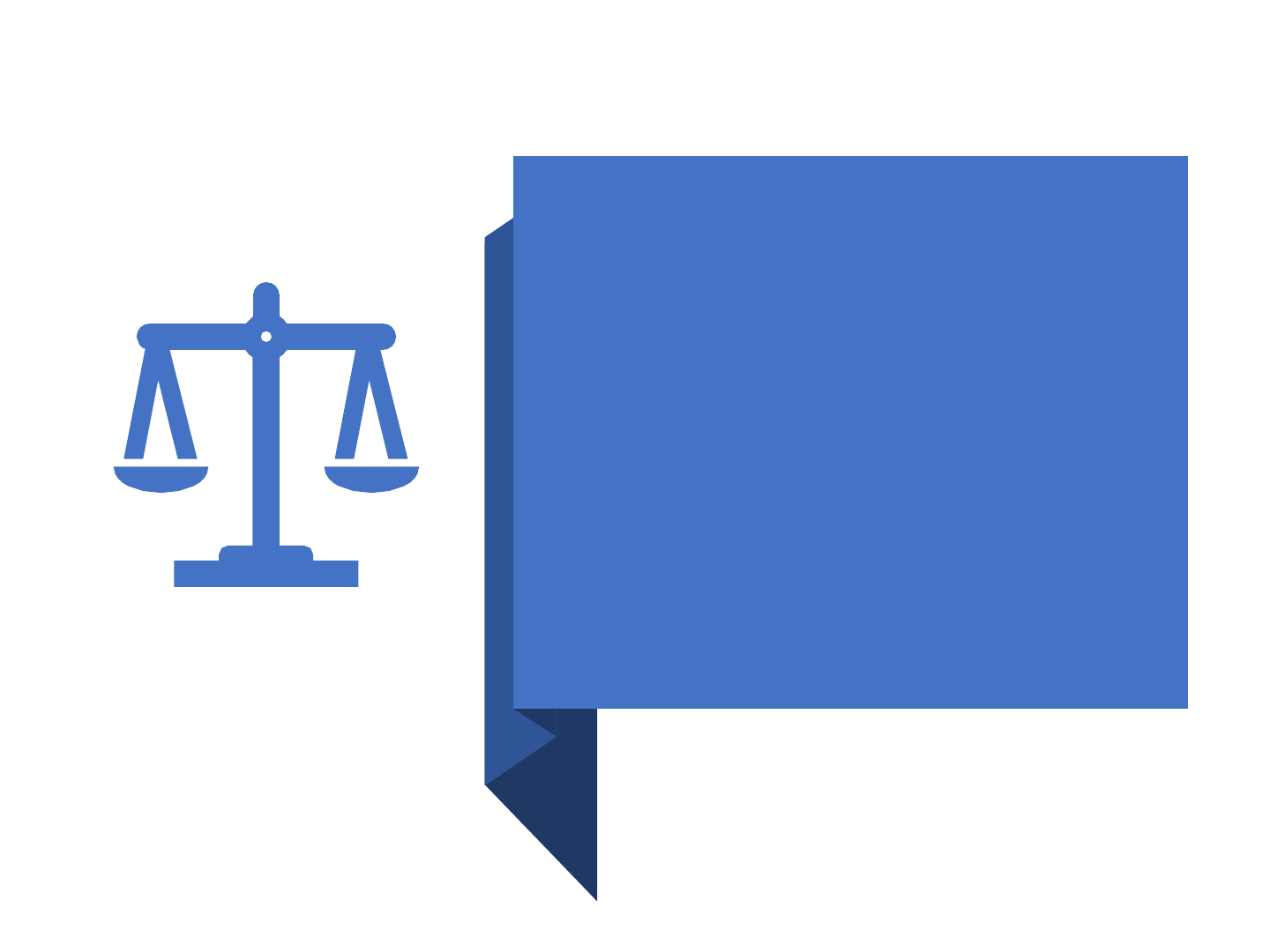
Oregon Public Meetings,
Public Records, Record
Retention and Ethics Laws
Shannon O’Fallon
Senior Assistant Attorney General
Oregon Department of Justice

Public
Meetings Law
2

Who Does the Public Meetings Law (PML)
Apply To?
• Governing bodies of
public bodies.
• Advisory body or
subcommittee of a
public body if it has
authority to make
decisions for or
recommendations to a
public body on policy or
administration.
3

What is a Governing Body?
• "Governing body" means the members of any public body
consisting of two or more members with authority to:
• Make decisions for a public body on policy or administration;
or
• Make recommendations to a public body on policy or
administration. ORS 192.610(3).
4

Type of meetings
that must comply
with the PML
• The convening of a governing
body for which a quorum is
required to make a decision or
deliberate toward a decision on
any matter. Includes:
• In-person or phone
meetings
• Group email
communications
• “Serial” email
communications
• Lunch meetings
• Phone calls
• The purpose of the meeting
defines whether it must comply
with the PML.
5

Basic Requirements of the PML
• Meetings must be open to the public unless executive
session authorized
• Advance notice to interested parties of meetings, location,
principal subjects
• Minutes must be taken at meetings or the meetings must be
recorded
• Votes must be cast publicly and recorded; and
• Meetings must be accessible to persons with disabilities
6

Minutes or Recording Required
• Must record (audio recording) or
document in minutes:
• Member attendance
• All motions, proposals,
resolutions and disposition
• Results of votes and how each
member voted
• Substance of all discussions
• Reference to all documents
discussed (except for
confidential records exempt
from disclosure)
• For emergency meetings, a
description of the emergency
justifying the meeting
7

Electronic Public Meetings
• Meetings may be held by phone or
other electronic means, but all
procedural and formal
requirements for meetings apply
(access by the public, minutes,
notice, etc.).
• Except for executive sessions,
public must be able to listen in real
time to the meeting.
• Meetings may be conducted with
some members of the governing
body appearing at the meeting
location while others attend
electronically.
8

Public Vote
Required
9
All official actions by a governing body must be taken
by public vote.
The vote of each member must be recorded if the
public body has 25 or fewer members.
If the public body consists of more than 25 members,
recording the vote of each member is mandatory only
if a member of that body requests it.
No voting in executive session.
Secret ballots are prohibited.

Serial/Private Communications
• A series of private communications, via
email, for example, can violate the PML.
The Oregon Court of Appeals has noted
that a staff member’s e-mails and
phone calls with various board
members deliberating towards the
resolution of a public records request
could be a violation of the PML.
• It is recommended that board members
not meet in private to discuss business,
or exchange private communications
about business, even if those involved
constitute less than a quorum.
10

Executive Sessions
• Notice of the meeting must cite specific legal
provision authorizing the executive session
under ORS 192.660(2).
• Before going into executive session, the
presiding officer must announce the specific
statutory authority for the executive session.
• Take minutes or record executive session but
keep separate from general session minutes.
• Members of the media may attend executive
session, with limited exceptions. News media
must be instructed not to report about what
happened at the beginning of executive
session or they may do so.
• Discussions in executive session must stay
within the bounds of the specific purpose of
the executive session.
• No final action or final decision can be made in
executive session. ORS 192.660(6).
11

Public
Records Law
12

Oregon Public
Records Law (PRL)
• General expectation that
government will be transparent.
• Government records are
available to the public.
• There are exceptions to this
“openness” but laws exempting
records from disclosure under
the PRL are construed narrowly.
• Public Records Law: ORS
192.311 - 192.478.
• The Oregon version of the
federal Freedom of Information
Act (FOIA).
13

Who Can Make a Public Records Request? (PRR)
• Every “person” has the right to
inspect any non-exempt public
record of a public body of this
state.
• “Person” includes:
• Natural person (you and me)
• Corporation
• Partnership
• Firm
• Association
• Member or committee of the
Legislative Assembly
14

What is a Public
Record?
• “[A]ny writing that contains information
relating to the conduct of the public’s
business that is prepared, owned, used or
retained by a public body regardless of
physical form or characteristics.”
• Includes records that were received from
someone else.
• “Public record” does not include any writing
that does not relate to the conduct of the
public’s business and that is contained on a
privately owned computer.”
ORS 192.311
15

What is a
“Writing”?
Any information stored on
virtually any medium,
including voice mails, texts,
e-mail, photos.
16

Exemptions
From
Disclosure
Under the
PRA
18
• ORS 192.355(1)
Internal communications
• ORS 192.355(2)
Personal privacy
• ORS 192.355(4)
Information submitted in confidence
• ORS 192.355(8) and (9)
Disclosure prohibited under state or federal law

Public Records
Retention
19

What Public
Records Have
to Be
Retained
• Definition of “public record” differs
slightly from what a “public record” is
for purposes of the PRL (it’s narrower).
• For purposes of retention, the public
record must be necessary to satisfy the
fiscal, legal, administrative or historical
policies, requirements or needs of the
agency, in order for the retention
requirement to apply.
ORS 192.005
20

Public
Records
Retention
Schedules
• Public records must be retained for a
period determined by the applicable
retention schedule. ORS 192.105;
ORS 192.108.
• Retention schedules are set by the
State Archivist within the Secretary of
State’s Office.
• Example: Oregon Public Health
Advisory Board Meeting Records:
(a) Retain meeting minutes, agendas
and exhibits permanently, transfer to
State Archives after 5 years
(b) Retain all other records 10 years,
destroy
21

How to
Retain
• Archive emails if automatically deleted
after certain period of time.
• Print and retain in file.
• Some types of records may be
challenging to retain in their original
format (e.g., text messages and social
media posts). These may be copied and
printed.
22

Penalties
•Knowingly destroying public records
without authorization is a class A
misdemeanor.
23

Oregon
Ethics Law
24

What is the Oregon
Government Ethics Law?
• The Oregon Government Ethics Law is a code of
ethical conduct for persons who serve public
bodies in Oregon. ORS 244
• The Oregon Government Ethics Commission
enforces the law.
25

Who does the ethics law apply to?
• All “public officials.”
• “Public official” includes
any person who is serving
the State of Oregon as an
elected official,
appointed official,
employee or agent,
irrespective of whether
the person is
compensated for the
services. ORS
244.020(15).
26

Basic Requirements of the Ethics
Law
• A public official may not use or attempt to use official position
or office to:
• Obtain financial gain
• Avoid financial detriment for the public official
• Prohibition applies to financial gain or avoidance of financial
detriment for relatives, members of the public officials’
household, or businesses with which the public official or a
relative or member of the household of the public official is
associated.
• Must consider whether the financial gain or avoidance of
financial detriment would not otherwise be available but for
the public official’s holding of the official position or office.
27

Conflicts of Interest
• Actual conflict of interest = Any action, decision or recommendation by a
person acting in a capacity as a public official, that is to the private
pecuniary benefit or detriment of the person, the person’s relative, or any
business with which the person or a relative of the person is associated
unless the pecuniary benefit or detriment arises out of the circumstances
of a potential conflict of interest.
• Potential conflict of interest = Any action, decision or recommendation by
a person acting in a capacity as a public official, that could be to the
private pecuniary benefit or detriment of the person, the person’s relative,
or a business with which the person or the person’s relative is associated,
unless the pecuniary benefit or detriment arises out of the following:
• An interest or membership in a particular business, industry, occupation or other
class required by law as a prerequisite to the holding by the person of the office or
position.
• Any action in the person’s official capacity which would affect to the same degree a
class consisting of all inhabitants of the state, or a smaller class consisting of an
industry, occupation or other group including one of which or in which the person, or
the person’s relative or business with which the person or the person’s relative is
associated, is a member or is engaged.
28

Declaring Conflicts
• If a member of the board has an actual or potential conflict of
interest the member must:
• If it’s a potential conflict of interest, announce publicly the
nature of the potential conflict prior to taking any action; or
• If it’s an actual conflict of interest, announce publicly the
nature of the actual conflict and:
(A) Except as provided in (B) refrain from participating as a public
official in any discussion or debate on the issue out of which the
actual conflict arises or from voting on the issue.
(B) If the member’s vote is necessary to meet a requirement of a
minimum number of votes to take official action, be eligible to vote,
but not to participate as a public official in any discussion or debate
on the issue out of which the actual conflict arises.
• When a board member gives notice of an actual or potential
conflict of interest, OHA shall record the actual or potential
conflict in its official records.
• ORS 244.120, 244.130
29

Questions?
30

